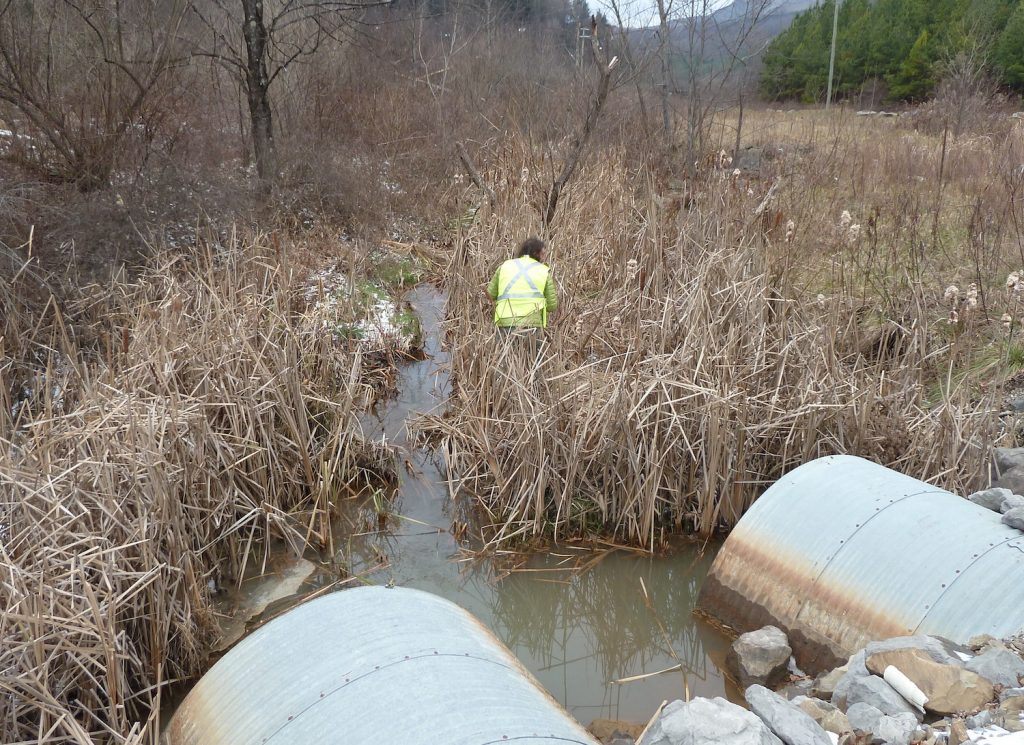Cleaning Up Coal Ash
For well over a century, power plants across the country have burned coal to generate electricity. And for just as long, leftover coal ash has been dumped in open, unlined pits near the power plant, usually located on a river or lake. Every year, U.S. power plants produce 130 million tons of coal ash, which is the second largest waste stream in the country after municipal garbage.
Coal ash concentrates the toxic heavy metals found in coal, including arsenic, mercury, lead and selenium. Stored in unlined, wet impoundments, coal ash has been leaking these toxics into our groundwater and surface waters for years. Sometimes these impoundments collapse — with disastrous results.
Yet government regulations for coal ash management are either non-existent or sparse, and there is little enforcement of the regulations that do exist. In North Carolina, this lack of oversight — and the complicity between state regulators, elected officials and Duke Energy — came to a boiling point in February 2014 when one of Duke’s coal ash impoundments spilled 39 million tons of ash into the Dan River.
Citizens living near North Carolina’s 33 coal ash impoundments — all of which have leaked — have fought for transparency from Duke and the state, and for cleanup of the pollution that threatens their property value, health and family. Their actions forced this issue into the headlines of news networks and to the forefront of environmental justice conversations in the United States.
Appalachian Voices stood with these communities as we worked for years to compel Duke Energy and the N.C. Department of Environmental Quality to excavate coal ash from all the North Carolina sites and dispose of it either in lined, dry landfills, away from waterways, or by recycling it for concrete or other uses, provided it’s done in a manner that protects public health and the environment.
On Jan. 2, 2020, North Carolina announced a historic settlement with one of the state’s most powerful corporations and polluters, Duke Energy. The settlement requires Duke to move nearly 80 million tons of toxic coal ash at six of its power plants to properly lined landfills onsite or recycle it.

Learn information about specific coal ash impoundments in the South, including health threats and safety ratings:
Additional Resources
Fact sheets, videos, links to academic research, and more
Sign Up to Act
Help us protect the health of our communities and waterways.
Latest News
Member-owners join together to support transparency and governance reforms for Virginia’s rural electric cooperatives
Richmond, Va. — A coalition representing member-owners of Virginia’s rural electric cooperative (RECs) is rallying in support of Del. Wendy Gooditis’ legislation that seeks to establish protections and safeguards for customers (member-owners) of the thirteen rural electric cooperatives in the state. These reforms would include allowing member-owners to observe board meetings, voter integrity measures for cooperative board elections, and transparency in cooperative political lobbying.
Can’t stop, won’t stop! Fighting to protect you and the environment at Virginia’s General Assembly
Virginia’s 2022 General Assembly gaveled in on January 12 for two months of legislative wrangling in the crowded halls of the state capitol! We expect to play defense on protecting pivotal laws that tackle the climate crisis, while pushing for progress in key areas. Don’t sit this one out — we need all Virginia hands on deck!
Federal review of mining rule may speed up complaint process
An upcoming federal review of a mining rule could help speed up the process for coalfield residents who file federal complaints about state mining agencies.
Black Lung Association and 68 organizations demand urgent action from Congress to extend Black Lung Excise Tax
CONTACT: Dan Radmacher, dan@appvoices.org, (540) 798-6683 Trey Pollard,…
New report explains why West Virginia needs the Black Lung Excise Tax
This morning, advocates for miners with black lung and their families released a new report outlining the critically important impacts of the black lung excise tax and the Black Lung Disability Trust Fund in West Virginia. The report comes days after the excise tax rate was slashed due to Congressional inaction, gutting funding for the Black Lung Disability Trust Fund that supports benefits for thousands of miners in West Virginia.
Appalachian Voices calls on Gov.-elect Youngkin to withdraw Wheeler’s nomination as Natural Resources secretary
“Based on his egregious record as EPA administrator, Andrew Wheeler is unfit to serve as Virginia’s next Secretary of Natural and Historic Resources,” said Tom Cormons, executive director of Appalachian Voices.











